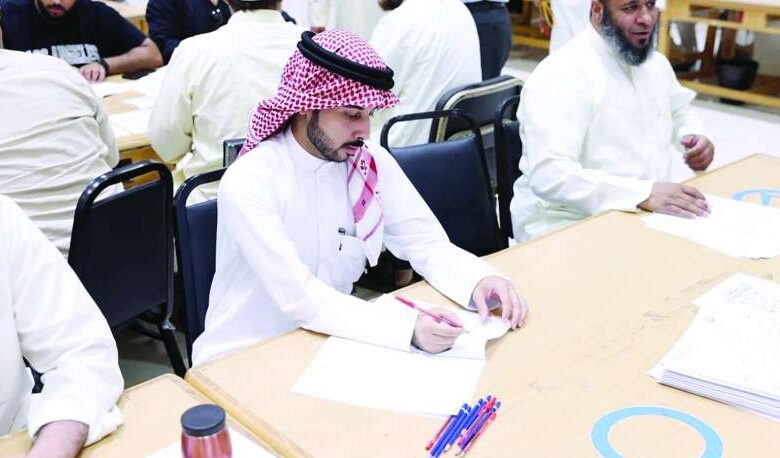Twelfth-grade exams show drop in cheating incidents
Only 136 cases were reported in the first two days of the examinations across scientific and literary sections, whereas previously there were over 200 cases per day.

-
While 3,801 male and female students were absent from the tests last Wednesday and Thursday, the correction committees in the control unit are continuing the process of grading the mathematics, French, and Arabic language tests in the two sections.
-
The committees did not observe any negative phenomena in the current tests, such as students’ model answers being consistent, unlike the issues seen in cheating groups.
The end-of-term exams for twelfth-grade students in the current academic year showcased a notable increase in awareness, with a significant decrease in cheating incidents compared to previous years. Only 136 cases were reported in the first two days of the exams across scientific and literary sections, whereas previously there were over 200 cases per day.
While 3,801 male and female students were absent from the tests last Wednesday and Thursday, the correction committees in the control unit are continuing the process of grading the mathematics, French, and Arabic language tests in the two sections. The committees did not observe any negative phenomena in the current tests, such as students’ model answers being consistent, unlike the issues seen in cheating groups.
Health challenges in high school exams
The health condition that influenced the high school exams is the outcome of various measures taken by the Ministry of Education, culminating in this success.
The most important of these measures is the issuance of examination regulations with various penalties that enforced discipline and firmness in the committees.
Additionally, rotating the committee heads, allocating resident observers, and ensuring that committee members do not have close relations with students in the first and second grades have also played significant roles.
The ministry expanded the powers of the resident observer, granting them the authority to inspect committees, supervise the distribution of exam papers, monitor committee progress, and compile detailed progress reports. Additionally, more severe legal measures were adopted against heads of examination committees who facilitate cheating, enforcing regulations and penalties against negligent individuals.
Tackling physics and literature
As the second week of these tests approaches and students in the scientific department tackle physics and literature in history today, an educational report confirms that the Ministry of Education has implemented some of the recommendations from the anti-cheating team led by Dr. Adel Al-Adwani, the Minister of Education and Minister of Higher Education and Scientific Research. This team was formed to study the cheating phenomenon and develop solutions for it.
The report stated, “These and other solutions may contribute directly and indirectly to reducing the phenomenon, but the greatest responsibility lies with the family, state institutions, and civil society. They are the incubators of young people and the source of their values, behaviors, and intellectual and religious principles that support the ministry and its plans through guidance, advice, and awareness. This helps in creating a responsible generation that seeks hard work and diligence and is aware that fraud is detrimental to societies and a harbinger of their decline.”













